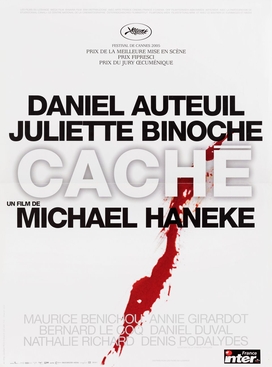 From time to time, Good Small Films will go Out of Focus for a post about a film or filmmaker not directly associated with Woody Allen. There are already far too many "reviews" on the internet, so we'll leave that to other sites. We hope to do something that is brief and fear of spoilers (take care when clicking on embedded links); we hope to provide a handful of talking points that will pique your interest enough to check out a director or movie you may have missed. In short, we hope to leave you with questions, not answers, and to encourage you to invest 2 hours of your time in something more than Woody watching.
From time to time, Good Small Films will go Out of Focus for a post about a film or filmmaker not directly associated with Woody Allen. There are already far too many "reviews" on the internet, so we'll leave that to other sites. We hope to do something that is brief and fear of spoilers (take care when clicking on embedded links); we hope to provide a handful of talking points that will pique your interest enough to check out a director or movie you may have missed. In short, we hope to leave you with questions, not answers, and to encourage you to invest 2 hours of your time in something more than Woody watching. By most accounts, Cache is one of the dozen or so great films of the new century. It's Austrian director Michael Haneke's masterpiece. Run a search of the film and you'll find that it was lauded world wide with awards and critical reception.
According to Haneke, the film is ultimately about living with guilt. The film's protagonist isn't Arthur Dimmesdale reincarnate, but Georges Laurent (Daniel Auteuil) is a character at odds with an event of his past. Haneke manages to ask poignant questions about the nature of guilt as it morphs and transforms in the current of life before pooling up many years later, down stream. It's easy to relate to this protagonist because his guilt is built upon a common "sin," the sort of sin nearly every member of the audience has committed. Laurent is not haunted by a mere peccadillo, but neither is he a savage. On average, he's a decent man and average citizen. He lives a routine life. So far as themes go, Heneke has not discovered oil. Nothing about the plot is spectacular. The genius of Cache is in the way the story is told. As Jake Meaney eloquently writes:
"Cache is about as deliberately composed a film as you are a likely to see; extremely clinical, forbiddingly cold, entirely drained of color. It's so exquisitely stark, that you know Haneke wants you to see, to really see, what it is he’s trying to get at. Or does he? There's a profound dissonance at work here, roiling underneath the film's staid sheen, a sort of ontological dread that has more to do with the film's composition than its narrative."The genius of Cache is it's composition. Few films have done such a masterful job of interweaving theme and technique. The film's long, wide shots and lack of score are not the product of artsy-fartsy pretense. These decisions, with others aside, are beautiful, thoughtfully-appropriated marks of brilliant craftsmanship.
 If Cache's central theme is the affect of living with guilt, it's support themes are the hiddenness of sin, trust and deception.
If Cache's central theme is the affect of living with guilt, it's support themes are the hiddenness of sin, trust and deception.No one in the film is completely trustworthy. They are all normal people, but each character is portrayed in both sympathetic and suspicious lights. Haneke only shows enough to make the plot coherent, with most stock details left to mercy of a lovely ambiguity. While most films of this type work toward a moment of knowing, this one achieves unknowing. Quoting Meaney again,
"There's something hidden in the long, static closing shot of Cache—a clue, an answer, a red herring, an epiphany. It's embedded deep, somewhere back in the shadows—or, perhaps, it's right up front, hiding in plain sight. It vastly alters everything that preceded it, demanding a total reevaluation of the film—or it just further complicates this already profoundly inscrutable mystery. It is a conclusion both languidly drawn out and violently abrupt, stunning in its simplicity, infuriating in its opacity."Haneke has said that Cache self-consciously resisted the banality which is standard fare within American films. That is, rather than providing the film with a tidy resolution, it explodes in a firestorm of possibility. Is it an ending at all?
Finally, we'll leave you the obvious question left to all viewers of this film: Who is off camera? What are they doing? Why? And, not what is happening in this frame, but whose frame are we watching?




No comments:
Post a Comment